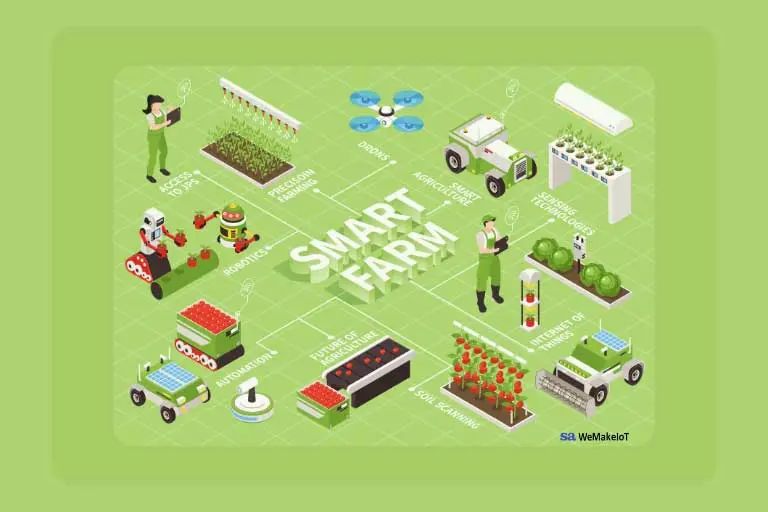The agricultural landscape is undergoing a technological revolution, and at the forefront of this transformation is the advent of Smart Farming. Leveraging the power of the Internet of Things (IoT), farmers are now equipped with innovative tools that provide real-time insights into their operations, optimizing resource utilization, and ensuring sustainable farming practices. In this blog, we explore the broader realm of smart farming.
Smart Farming: A Technological Paradigm Shift
- Precision Agriculture
Smart farming revolves around the concept of precision agriculture, where data-driven decision-making takes center stage. IoT devices such as sensors, smart machinery, etc., are employed to collect and analyze data, enabling farmers to fine-tune their practices for maximum efficiency. - Data-Driven Decision Making
The heart of smart farming lies in the ability to gather real-time data from the farm environment. Sensors deployed across fields collect information on various parameters, including soil moisture, temperature, humidity, and crop health. This data is then processed and presented to farmers, empowering them to make informed decisions that can optimize yields and minimize resource wastage. - Automation and Robotics:
Smart farming involves the integration of automation and robotics to perform tasks such as planting, harvesting, and even weed control. This not only reduces the dependence on manual labor but also enhances operational efficiency. - Connectivity and Communication:
IoT technologies facilitate seamless connectivity between devices on the farm. This interconnected network ensures that data flows efficiently, enabling timely responses to changing conditions. Wireless communication technologies play a crucial role in establishing reliable connections across expansive farm areas.
The marriage of smart farming practices with IoT technologies is revolutionizing agriculture. Through data-driven decision-making and real-time monitoring, farmers can optimize their operations, enhance productivity, and contribute to sustainable and efficient farming practices. As smart farming continues to evolve, the integration of advanced technologies promises a future where agriculture is not just a traditional practice but a tech-driven, precision-oriented industry.
Contact us to learn more.


